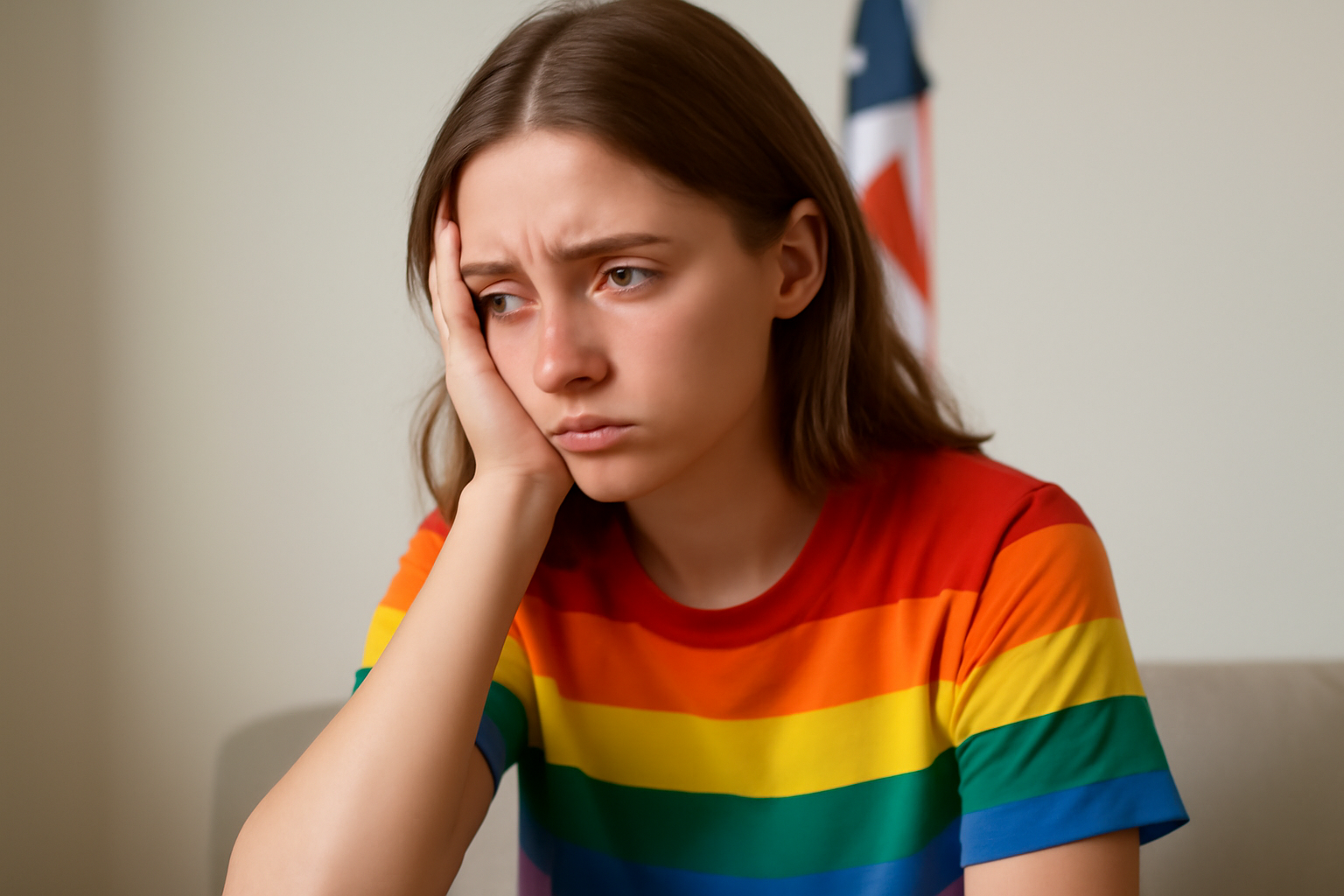
Recent changes in government policies have raised significant concerns within the LGBTQ+ community, especially regarding the mental health and well-being of LGBTQ+ teens. There has been growing evidence that suggests these policy shifts are contributing to an increased risk of mental health issues among young LGBTQ+ individuals.
Understanding the Impact of Policy Changes
The changes in question largely pertain to the rollback of certain protections and supports for LGBTQ+ individuals. These include policy decisions that affect healthcare, education, and civil rights. Such decisions often send a message to vulnerable groups that their rights and well-being are not a priority, potentially leading to increased feelings of alienation and discrimination.
For LGBTQ+ teens, who are already at a higher risk for mental health issues such as anxiety and depression, these policy changes can exacerbate existing challenges. The Trevor Project, an organization dedicated to crisis intervention and suicide prevention for LGBTQ+ youth, has highlighted the correlation between discriminatory policies and increased rates of mental health crises among these teens.
The Role of Support Systems
Support systems play a crucial role in the mental health of LGBTQ+ youth. Schools, communities, and families can all contribute to an environment that either supports or undermines the well-being of LGBTQ+ individuals. Policies that restrict the rights of LGBTQ+ individuals can undermine these support systems by creating environments where discrimination is normalized or even institutionalized.
Studies have shown that LGBTQ+ teens who have access to affirming environments and support systems are significantly less likely to experience severe mental health issues. Conversely, when these support systems are weakened or removed, the risk of mental health crises increases.
Steps Towards Improvement
There are a number of ways in which we can work towards improving the mental health outlook for LGBTQ+ teens in light of these challenges. Advocacy and education are key components in this effort. By raising awareness about the impacts of these policy changes and advocating for more inclusive and protective legislation, communities can help mitigate some of the negative effects.
Organizations and community leaders can also play a pivotal role in building and maintaining support systems for LGBTQ+ youth. This includes training educators and healthcare providers to be more inclusive and aware of the unique challenges faced by LGBTQ+ individuals, creating safe spaces where these teens can express themselves without fear of judgment or discrimination.
The Importance of Inclusive Policies
It is essential for policymakers to recognize the impact of their decisions on marginalized communities. Policies that promote inclusion and protect the rights of all individuals, regardless of their sexual orientation or gender identity, are crucial for the well-being of LGBTQ+ youth. When these policies are in place, they provide a framework for equality and support that can significantly reduce the risk of mental health issues.
Furthermore, research has consistently shown that inclusive policies not only benefit LGBTQ+ individuals but also enhance the overall health and cohesion of communities. Inclusive policies help foster environments where diversity is celebrated, and all individuals can thrive.
Conclusion
In conclusion, the recent shifts in government policies have highlighted the ongoing challenges faced by LGBTQ+ teens. While these changes pose significant risks to their mental health, there is also an opportunity to advocate for more inclusive and supportive policies. By doing so, we can work towards a future where all individuals, regardless of their identity, are able to live freely and without fear of discrimination.
As we move forward, it is imperative for communities, policymakers, and individuals to come together to support LGBTQ+ youth and ensure they have access to the resources and environments they need to thrive.
Related Posts
Pride Month in Latin America: Protests and Demands for Equality
**Celebrating Pride and advocating LGBTQ+ rights in Latin America** Pride Month in Latin America was a lively mix where celebration met activism. Communities united, not just throwing a party but making a stand—demanding equality and pushing governments toward better protection and rights recognition. Throughout Latin America, pride events erupted in marches and cultural displays, each with a c [...]
Transgender Erasure Actions Implemented by National Park Service
```html Trump administration's impact on national park service and transgender recognition The Trump administration made notable moves in undermining transgender representation, which included directing agencies like National Park Service not include "T" and "Q" when they refered “LGBTQ” in any official communication. This move seems part a broader plan by this administration aimed at reducin [...]
Drag Night Extravaganza: Daddies & Baddies at Atlantic City's Anchor Rock Club
Atlantic City, NJ, isn't just about its casinos and boardwalk—it's a hub bursting with energy and entertainment. One event that truly captures this spirit? The "Daddies & Baddies" drag night at Anchor Rock Club. This vibrant night celebrates amateur drag in all its glory, offering a kaleidoscope display where creativity and community unite. If you're looking where inclusivity and creativity take [...]